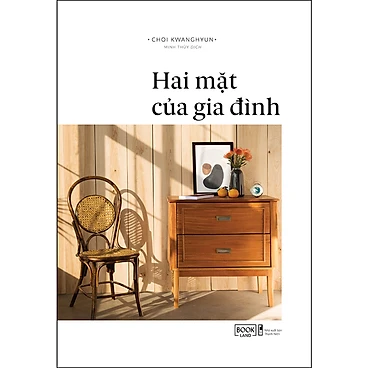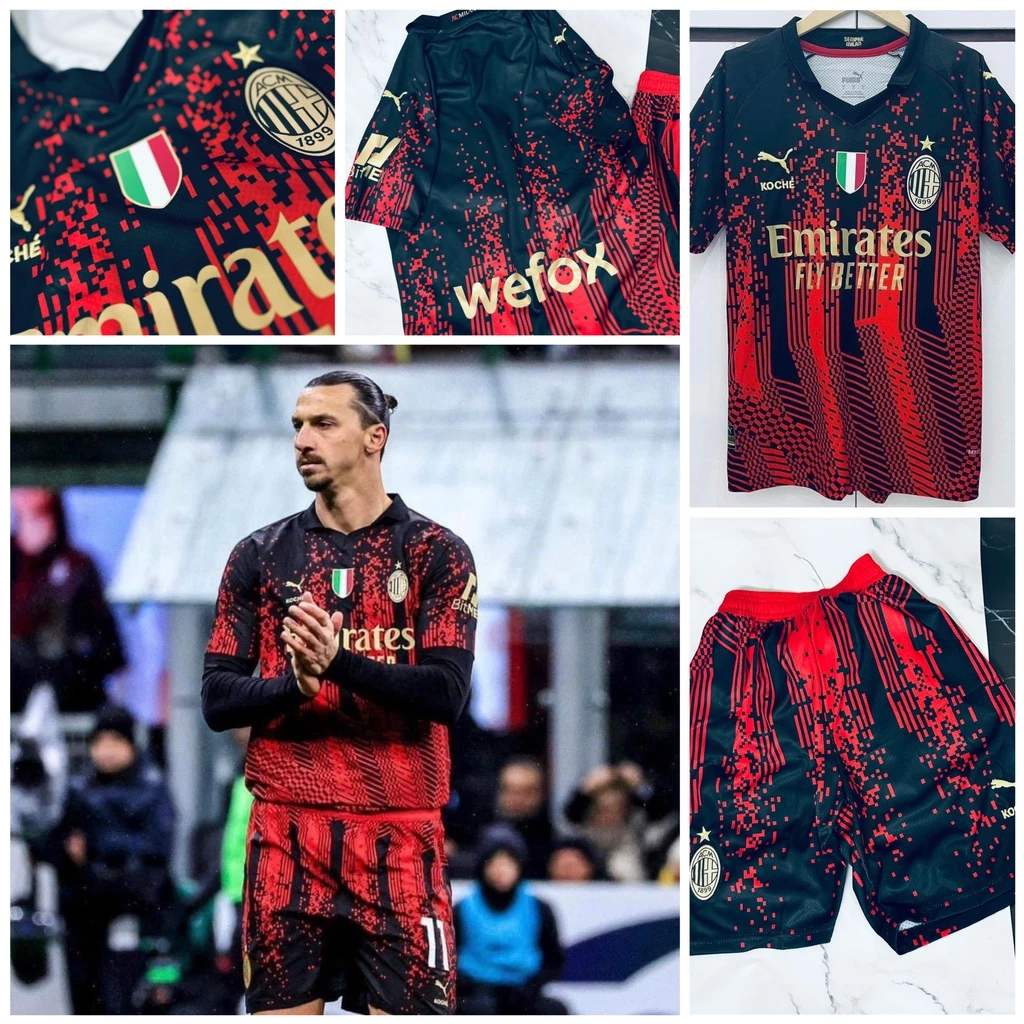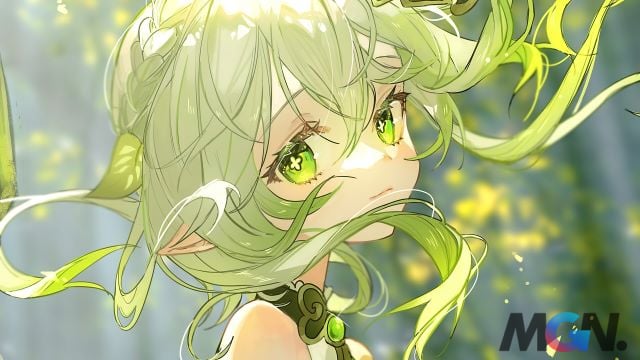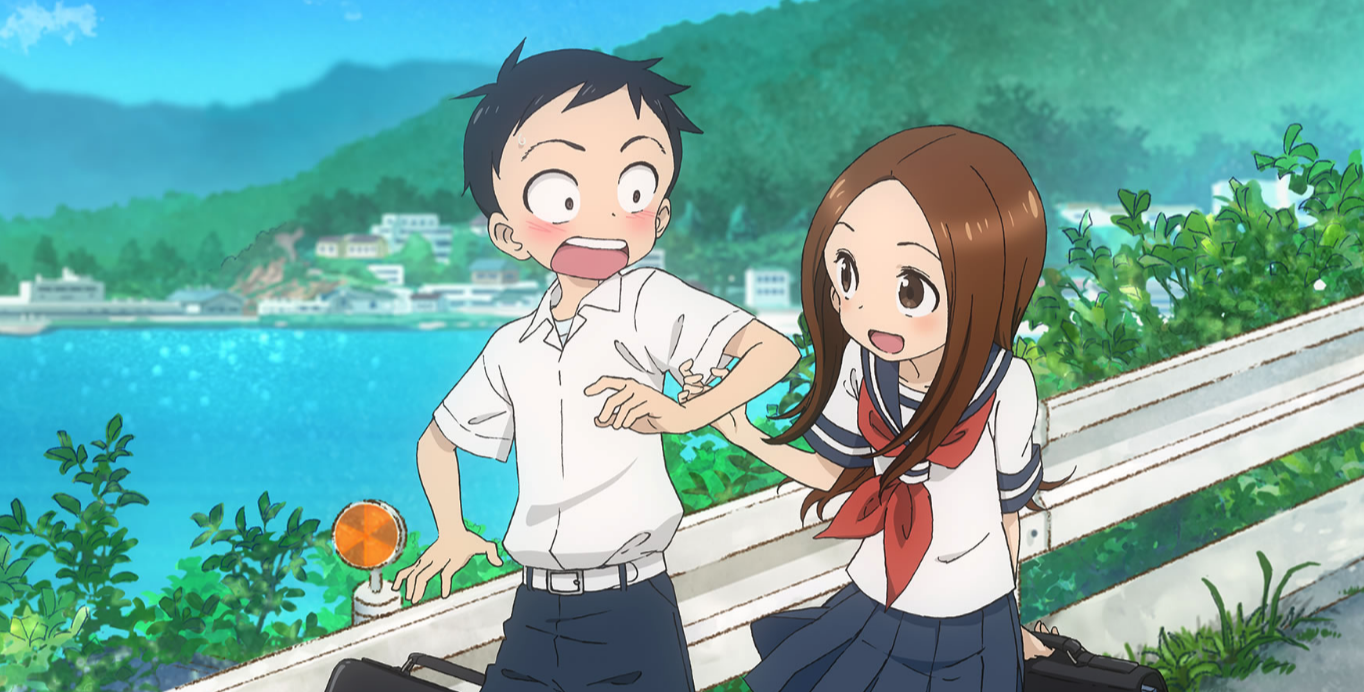Ruspolia nitidula
| Ruspolia nitidula | |
|---|---|
 | |
| Phân loại khoa học | |
| Giới (regnum) | Animalia |
| Ngành (phylum) | Arthropoda |
| Phân ngành (subphylum) | Hexapoda |
| Lớp (class) | Insecta |
| Bộ (ordo) | Orthoptera |
| Liên họ (superfamilia) | Tettigonioidea |
| Họ (familia) | Tettigoniidae |
| Chi (genus) | Ruspolia |
| Loài (species) | Ruspolia nitidula |
| Danh pháp hai phần | |
| Ruspolia nitidula (Scopoli, 1786) | |
| Danh pháp đồng nghĩa | |
Conocephalus eurostratus Jannone, 1936[1][2] Conocephalus ambiguus macroptercus Bolívar, I., 1890[1][3][4][5] Conocephalus ambiguus minor Bolívar, I., 1890[1][3][4] Conocephalus ambiguus Stål, 1876[3][4][6] Locusta erythrosoma Saint-Fargeau & Serville, 1825[3][7][8] Conocephalus mandibularis Charpentier, 1825[1][3][9][10][11][12][13][14][15][16][17][18][19] Locusta tuberculata Rossius, 1790[3][20][21][22][23][24] Homorocoryphus nitidulus nitidulus (Scopoli, 1786)[25] Ruspolia nitidula nitidula (Scopoli, 1786)[26][27][28][29] Conocephalus nitidulus (Scopoli, 1786)[21][30][31][32][33] Homorocoryphus nitidulus (Scopoli, 1786)[34][35][36][37][38][39][40][41] Gryllus nitidulus Scopoli, 1786[42] | |
Ruspolia nitidula[1] là một loài động vật thuộc phân họ Conocephalinae trong họ Tettigoniidae.[43] Loài này được tìm thấy khắp châu Âu, châu Phi, và Cổ Bắc giới của châu Á.[44]
Mô tả
[sửa | sửa mã nguồn]Loài này có màu xanh lá cây, lớn và mảnh mai với đầu hình nón. Đỉnh của đầu có các dải màu kem đi qua nó và mắt. Kích thước của nó dao động từ 32–60 mm (1,3–2,4 in). Chúng của cả hai giới mở rộng hơn bụng. Họ có thể tạo ra âm thanh ù ù.[45]
Môi trường sống
[sửa | sửa mã nguồn]Là loài bản địa trung và nam châu Âu, nơi có thể được tìm thấy trên các bờ sông và các khu vực ẩm ướt khác có cỏ dài. Nó hiếm khi được tìm thấy ở miền nam nước Anh và đã đến khu vực này thông qua một đợt nhập khẩu tình cờ. Các loài có thể được tìm thấy từ tháng Bảy đến tháng Mười.[45] Loài này cũng là loài bản địa châu Phi và khu vực Cổ Bắc giới của châu Á.[44]
Khả năng ăn được
[sửa | sửa mã nguồn]Loài này thường được người ta ăn ở Uganda và việc bán chúng mang lại thu nhập lớn. giá trên mỗi đơn vị trọng lượng định kỳ cao hơn thịt bò ở các thị trường ở Uganda.[46] Trong những năm 1990, giá cà phê giảm, dẫn đến mất thu nhập chính của nhiều công dân. Giá của những con dế này đã giúp lấy lại thu nhập trong thập kỷ đó, nhưng dế có thời hạn sử dụng ngắn và sẽ cắn khi lấy ra khỏi kho.[46] It is also commonly eaten by many East African tribes.[47]
Một nghiên cứu năm 2016 bởi Food Science & Nutrition kết luận rằng dế được coi là bổ dưỡng và xào chúng dẫn đến mùi thơm và hương vị tốt hơn. Ở Uganda, chúng được nấu bằng cách xào, chiên sâu hoặc luộc và sau đó chúng được sấy khô. Con dế được ăn ở nhà hoặc thương mại trong các thị trấn như Kampala và Masaka.[47]
Tham khảo
[sửa | sửa mã nguồn]- ^ a b c d e Bailey, W.J. (1975) A review of the African species of the genus Ruspolia Schulthess (Orthoptera: Tettigonioidea), Bulletin de l'Institut Fondamental d'Afrique Noire (IFAN). Série A: Sciences Naturelles (Bull. IFAN (A)) 37(1):171-226
- ^ Jannone (1936) Su alcuni Ortotteri della Palestina con descrizione di una nuova specie del Gen. Homorocoryphus Karny, Bollettino della Società entomologica italiana (Boll. Soc. entom. ital.) 14:78-92
- ^ a b c d e f Kirby, W.F. (1906) Orthoptera Saltatoria. Part I. (Achetidae et Phasgonuridae.), A Synonymic Catalogue of Orthoptera (Orthoptera Saltatoria, Locustidae vel Acridiidae), British Museum (Natural History), London 2:i-viii, 1-562
- ^ a b c Bolívar, I. (1890) Ortópteros de Africa del Museo de Lisboa, Jornal de sciências mathemáticas, physicas e naturaes (Ser. 2) (J. Sci. Math. Phys. Nat., Lisboa (Ser. 2)) 1(4):211-232
- ^ Kevan, D.K.M. & Knipper (1955) Zur Systematik, Biologie, insbesondere Schwarmbildung, und Morphometrie afrikanischer Homorocoryphus (Orth. Tettigon. Conocephalidae), Veröffentlichungen aus dem Übersee-Museum Bremen (A) (Veröff. Überseemus. Bremen (A)) 2:277-318
- ^ Stål (1876) Bidrag till södra Afrikas Orthopter-fauna, Öfversigt af Kongliga Vetenskaps-Akademiens Förhandlinger (Ofv. K. Vetensk. Akad. Forh.) 33(3):29-76
- ^ Saint-Fargeau & Serville (1825) Histoire Naturelle. Entomologie, ou Histoire Naturelle des Crustaces, des Arachnides et des Insectes, Encyclopédie méthodique, ou par ordre de matières (Encyclopédie Méthodique) 7
- ^ Karny In Wytsman [Ed.] (1912) Orthoptera. Fam. Locustidae. Subfam. Copiphorinae, Genera Insectorum, V. Verteneuil & L. Desmet, Brussels 139:50 pp., 6 pls.
- ^ Frivaldsky (1867), Magyarországi Egyenesröpüek magánrajza. (Monographia Orthopterorum Hungariae), Magyar Akad. Nyomdásznál, Budapest 22-201, 7 pls.
- ^ Charpentier (1825) De Orthopteris Europaeis, Horae entomologicae, adjectis tabulis novem coloratis, apud A. Gosohorsky, Wratislaviae 61-181
- ^ Dubrony (1878) Liste des Orthoptères recueillis jusqu'ici en Ligurie, Annali del Museo Civico di Storia Naturale 'Giacomo Doria', Genova (Ann. Mus. Civ. Stor. Nat. Genova) 12:5-23
- ^ Krauss (1890) Erklärung der Orthopteren-Tafeln J. C. Savigny's in der "Description de l'Égypte.", Verhandlungen der Kaiserlich-Königlichen Zoologisch-Botanischen Gesellschaft in Wien (Verh. der Zoologisch-Botanischen Gesellsch. Wien) 40:227-272
- ^ Finot (1895) Faune de l'Algérie et de la Tunisie. Insectes Orthoptères, Annales de la Société Entomologique de France (Ann. Soc. ent. Fr.) 64:47-120, 401-552, 655-676
- ^ Krauss (1890) Beitrag zur Kenntnis westafrikanischer Orthopteren. 2. Orthopteren der Guinea-Inseln São Thomé und Rolas, gesammelt von Prof. Dr. Richard Greef., Zoologische Jahrbücher. Abteilung Systematik Geographie und Biologie der Tiere (Zoologische Jahrbücher. Abt. Syst. Geogr. und Biol. der Tiere) 5(4):647-667
- ^ Krauss (1879) Die Orthopteren-Fauna Istriens, Sitzungsberichte der Österreichischen Akademie der Wissenschaften. Mathematisch-Naturwissenschaftliche Klasse (Abt. 1) (Sitz. öst. Akad. Wiss. Math-naturw. Kl. Abt. 1) 1 78:451-542, 6 figs.
- ^ Riggio (1889) Alcune notizie sui progressi attuali dell'entomologia in Sicilia. Considerazioni sull'Ordine degli Ortotteri, Atti Accad. Palermo [N.S.] 10:42 pp., 1 pl.
- ^ Targioni-Tozzetti (1891), Animali ed insetti del tobacco in erba e del tabacco secco, Tipografia dei Fratelli Bencini 1-347
- ^ Germar (1825), Fauna Insectorum Europae (Faun. Ins. Eur.) 15 pl. 10
- ^ Rehn, J.A.G. (1901) The Acrididae, Tettigonidae and Gryllidae collected by Dr. A. Donaldson Smith in Northeast Africa, Proceedings of the Academy of Natural Sciences, Philadelphia (Proc. Acad. Nat. Sci. Philad.) 53:370-382
- ^ Fieber (1853) Synopsis der europäischen Orthoptera mit besonderer Rücksicht auf die in Böhmen vorkommenden Arten, Lotos 3:90-104, 115-129, 138-154, 168-176, 184-188, 201-207, 232-238, 252-261
- ^ a b Griffini (1906) Ortotteri raccolti da Leonardo Fea nell'Africa occidentale. 1. Hetrodidi, Conocephalidi, Meconemidi, Pseudophyllidi, Mecopodidi e Fanerotteridi, Annali del Museo Civico di Storia Naturale 'Giacomo Doria', Genova (Ann. Mus. Civ. Stor. Nat. Genova) 3(2):358–397
- ^ Rossius (1790), Fauna Etrusca 1
- ^ Latreille (1804), Histoire Naturelle, genérale et particuliere, des Crustacés et des Insectes (Hist. Nat. Crust. Ins.) 12:424 pp.
- ^ Kirby, W.F. (1900) Notes on the collection of African Phasgonuridae formed by Mr. W.L. Distant in the Transvaal, with descriptions of two new species, Annals and Magazine of Natural History, London (Ann. Mag. nat. Hist.) 7 6:211-217
- ^ Harz (1969) Die Orthopteren Europas I., Series Entomologica (Ser. Entomol.) 5:1-749
- ^ Defaut [Ed.] (2001), La détermination des Orthoptères de France, Defaut, Bedeilhac 85
- ^ Defaut (1999) Synopsis des orthoptères de France, Matériaux Orthoptériques et Entomocenotiques 2:87
- ^ Braud, Sardet & Morin (2002) Actualisation du catalogue des Orthopteroides de l'ile de Corse (France), Matériaux Orthoptériques et Entomocenotiques 7:5-22
- ^ Defaut (2000) Contribution a L'Inventaire Entomologique de L'Ile D'Ousson (Chatillon Sur Loire, Loiret): Les Orthopteres, Matériaux Orthoptériques et Entomocenotiques 5:37-46
- ^ Navás (1909) Notas zoológicas XVI: Ortópteros de Mallorca, Boletín de la Sociedad Aragonesa de Ciencias Naturales (Bol. Soc. Arag. Cienc. Nat.) 8:197-201
- ^ Karny (1907) Die Orthopterenfauna des Küstengebietes von Österreich-Ungarn, Berliner Entomologische Zeitschrift (Berlin Ent. Z.) 52:17-52, figs. 1-7
- ^ Lỗi chú thích: Thẻ
<ref>sai; không có nội dung trong thẻ ref có têncol34133 - ^ Karny (1908) Ergebnisse einer orthopterologischen Exkursion an den Neusiedler See, Wiener Entomologische Zeitung (Wiener Entomol. Z.) 27:92-98
- ^ Chopard (1943) Orthoptéroïdes de L'Afrique du Nord, Faune de l'Empire Français, Lib. Larose, Paris 1:450 pp.
- ^ Chopard (1922) Orthoptères et dermaptères, Faune de France, Fédération Française des Sociétés de Sciences Naturelles, Paris 3:212 pp., 466 figs.
- ^ Bruner, L. (1920[1919]) Orthoptera from Africa, being a report upon some Saltatoria mainly from Cameroon contained in the Carnegie Museum, Annals of the Carnegie Museum 13:92-142
- ^ Karny (1926) Beitrage zur Malayischen Orthopternfauna, Treubia 9(1-3):11-292, Taf III-V
- ^ Griffini (1908) Phasgonuridae africane del R. Museo di Storia Naturale di Bruxelles. Meconemidae et Conocephalidae, Mémoires de la Société entomologique de Belgique (Mem. Soc. entom. Belgique, Bruxelles) 15:65-73
- ^ Owen, D.F. (1965) Swarming and polymorphism in the African edible grasshopper, Homorocoryphus nitidulus (Tettigonioidea, Conocephalidae), Acta Tropica (Acta Trop.) 22:55-61
- ^ Steinmann (1965) New Oedaleus Fieb., and Bryodema Fieb. (Orthoptera) species from Central and East Asia, Annales Historico-Naturales Musei Nationalis Hungarici (Ann. hist.-nat. Mus. Nat. Hung.) 57:223-228
- ^ Kaltenbach (1967) Gampsocleis glabra (Herbst) und Homorocoryphus nitidulus (Scopoli), zwei faunistisch bemerkenswerte Heuschrecken im Naturschutzgebiet "Fischawiesen" bei Gramatneusiedel, Niederösterreich (Orthopteroidea, Saltatoria), Zeitschrift der Arbeitsgemeinschaft Österreichischer Entomologen (Z. Arbeitsgem. Österr. Entomol.) 19:35-37
- ^ Scopoli (1786), Delicidae forae et faunae insubricae, Tinici pars I:85 pp., 25 tavv.
- ^ Scopoli, J.A. 1786–88. Deliciae Flora et Fauna Insubricae Ticini. An account including new descriptions of the birds and mammals collected by Pierre Sonnerat on his voyages.
- ^ a b “Ruspolia nitidula Scopoli, 1786”. Global Biodiversity Information Facility. Truy cập ngày 23 tháng 7 năm 2019.
- ^ a b “Ruspolia nitidula (Scopoli, 1786)”. Orthoptera & Allied Insects. Bản gốc lưu trữ ngày 26 tháng 8 năm 2019. Truy cập ngày 23 tháng 7 năm 2019.
- ^ a b Waltner-Toews, David (2017). Eat the Beetles!. ECW Press. tr. 181–182. ISBN 9781770413146.
- ^ a b Ssepuuya, Geoffrey; Muzira Mukisa, Ivan; Nakimbugwe, Dorothy (ngày 13 tháng 4 năm 2016). “Nutritional composition, quality, and shelf stability of processed Ruspolia nitidula (edible grasshoppers)”. Food Science & Nutrition. 5 (1): 103–112. doi:10.1002/fsn3.369. PMC 5217929. PMID 28070321.
 GIẢM
31%
GIẢM
31%
 GIẢM
50%
GIẢM
50%
![[Review Sách] Suy tưởng](https://down-bs-vn.img.susercontent.com/vn-11134207-7r98o-llnmys2twmz345.webp) GIẢM
3%
GIẢM
3%





![[Chap 1] Cậu của ngày hôm nay cũng là tất cả đáng yêu](https://i.imgur.com/4rvwvkh.jpg)
